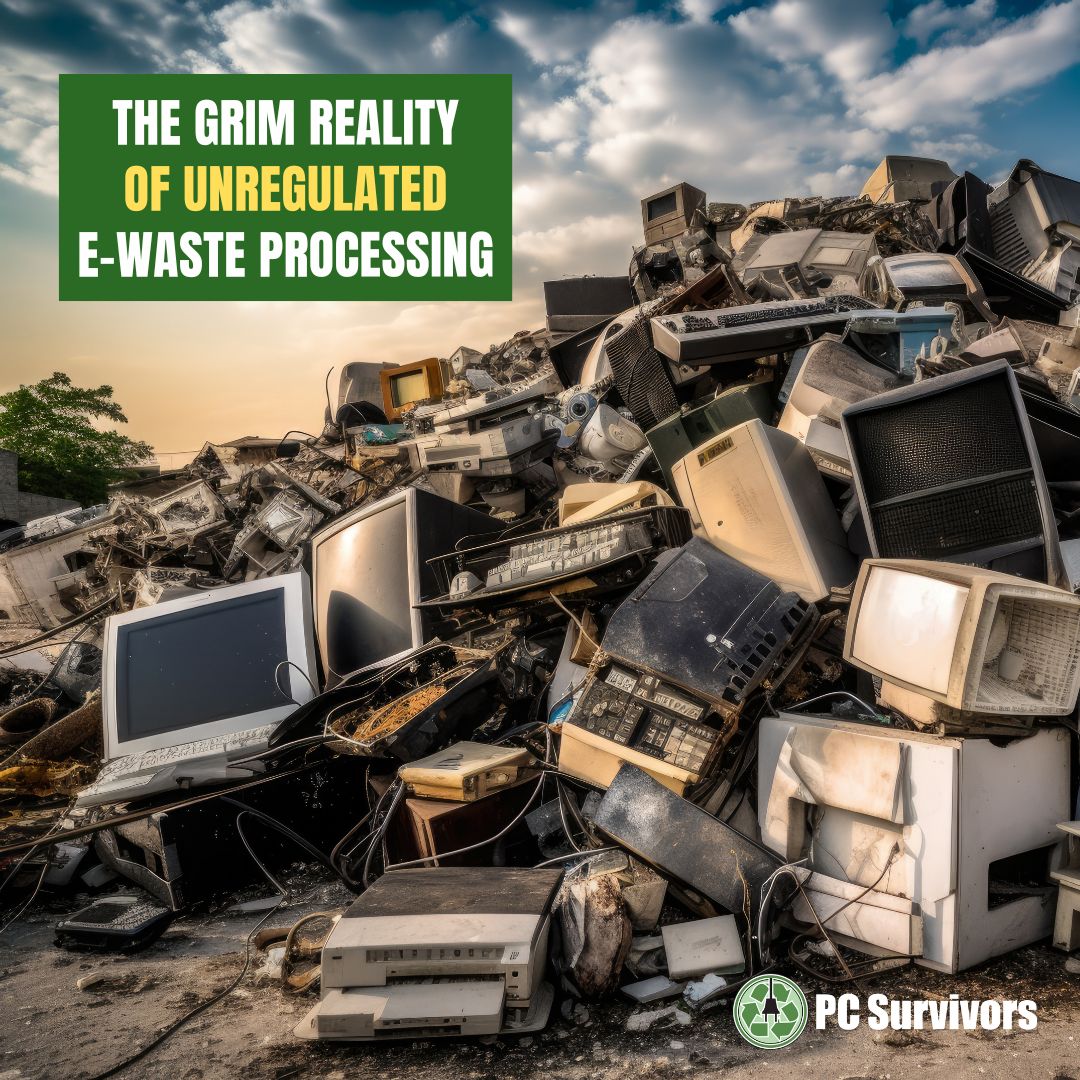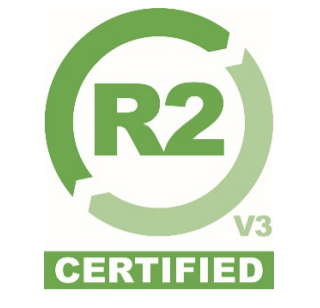The Grim Reality of Unregulated E-Waste Processing: A Look into the Dark Side of Improper Electronics Disposal
In today’s rapidly advancing technological era, electronic devices are experiencing a shrinking life cycle with each passing day. The result is an overwhelming accumulation of discarded computers, laptops, tablets, phones and other obsolete or unwanted equipment. This steady supply of decommissioned devices is fueling the growing problem of unregulated e-waste processing. At PC Survivors, we are shining a spotlight on the grave consequences associated with improper electronic disposal as well as the critical role of regulated e-waste recyclers and what you can do about the crisis.

Dark Electronic Forests: A Waking Nightmare
Imagine vast landscapes, stretching as far as the eye can see, dotted not with natural terrains, but instead with mountains of discarded electronics. Not long ago, a sight like this could only be found in a dystopian novel or movie. Today, such scenes are a tangible reality in many parts of the world where shipments of hazardous e-waste are routinely discarded.
As a planet, we generate a whopping 50 million tons of e-waste annually, a number that only keeps ticking upwards. While initiatives exist to manage this e-waste, a mere fraction undergoes proper disposal and recycling (less than 20%). The remainder often ends up in massive dumpsites, especially in developing countries. With time, these discarded devices corrode and disintegrate, releasing toxic substances into the environment. The resulting contaminated resources impact both the local ecosystem and its inhabitants.
Informal Processing: The Dangerous Hands of Desperation
A substantial portion of improperly disposed e-waste finds its way into informal and unregulated processing operations. One such dumping site is located in the Agbogbloshie commercial district of Accra, Ghana. Here adults and children alike are subjected to intense labor and dangerous living conditions in the hopes of earning a merger $70 – $140 per month. While Agbogbloshie is one of the world’s most notorious dumping sites, it is important to remember that many others like it exist in China, India, Nigeria, Liberia and other countries across the globe.
These makeshift ‘recycling’ hubs operate completely free from oversight and take little, if any, necessary protective measures for workers or the environment. The incredibly toxic technique of open burning is commonly practiced. These fires release fumes that are laden with poisonous impurities which are directly inhaled by those nearby. The long-term repercussions can include cancer, respiratory disease, genetic mutations and an array of other physical ailments. But the concern isn’t limited to those directly handling toxic materials. The soil and water sources of neighboring communities can become contaminated with heavy metals and persistent organic pollutants (POPs).
Rethinking E-Waste: Strategies for a Sustainable Tomorrow
At PC Survivors, we don’t just point out challenges, we emphasize potential solutions. Proper e-waste management isn’t an impossible problem to solve; it’s a matter of prioritization. Through stronger international cooperation, stricter regulations on e-waste disposal and funding for proper recycling facilities, a tide of change can start to roll in.
Businesses have a role to play too. By partnering with reputable e-waste recycling facilities, they can ensure devices are disposed of responsibly. We proudly hold RIOS and R2v3 certificates for sustainable recycling and are proud members of NAID (The National Association for Information Destruction), so you can count on us to process your e-waste in an eco-conscious and secure fashion. We also contribute to the cause by spreading public awareness about the importance of proper electronics disposal with articles like this.
The stark realities of today’s unregulated e-waste processing don’t have to be our future. Let them serve as a poignant reminder of our responsibilities, both as businesses and individuals. Your actions can create positive change in local communities, across the country and around the world. By taking steps towards responsible electronics disposal, we can move from grim present to hopeful tomorrow.
Help put a stop to unregulated e-waste processing. Call 781-924-3071 or use the contact form here on our website to get started.







